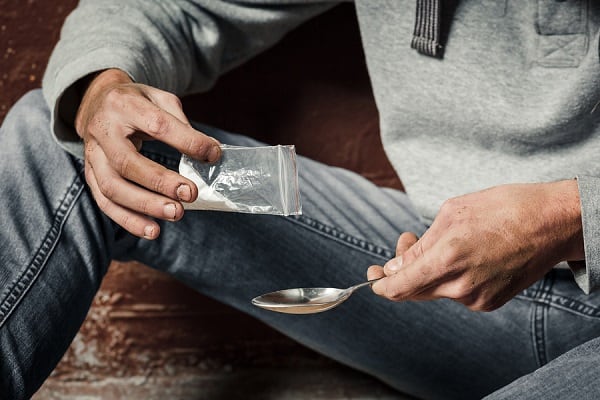Heroin remains one of the most addictive drugs in the world, with a protracted withdrawal process that can be extremely challenging. Nevertheless, not all heroin users are addicts, though heroin use almost inevitably eventually leads to addiction. Recreational heroin addicts are drawn to the drug’s powerful feelings of euphoria. And even though most users eventually become addicted, almost all insist that they’ll be the exception to the rule. According to a new study, though, even recreational heroin use could place your life in mortal danger.
Heroin Worsens HIV
Heroin users face a high risk of developing HIV/AIDS and other communicable diseases, particularly if they share or re-use needles. That alone should be a reason to stop, but a new study shows that the simple act of using heroin can worsen HIV in people who already have the disease. The study, conducted by Yale and Boston University researchers, asked HIV positive patients to report their heroin use for a year. At the six and 12-month marks, researchers took blood samples. CD4, a glycoprotein found on the T cells that HIV harms, tends to decrease in HIV users. In fact, doctors often use CD4 count to measure how HIV affects a patient since CD4 count is a good way to measure immune system quality. Researchers found that occasional heroin users had lower CD4 counts than people who did not use heroin. This suggests that heroin decreases immunity, allowing HIV to worsen more quickly. Since people with HIV are already vulnerable to a host of infections, this news is particularly grim. Researchers similarly found lower CD4 counts in alcohol addicts, suggesting that there may be something about a variety of addictions that lowers immunity. Likewise, study participants who were undergoing withdrawal faced lower CD4 counts, but the numbers did not stay low. This is strong evidence that withdrawal is challenging for the body but that the body is better equipped to bounce back after heroin rehab and detox is complete.
Heroin as a Health Risk Factor
Heroin users should not need a reason to quit, since the drug is inherently dangerous, exposing users to a host of health risk factors. If you’re still in denial about the effects of your heroin use, though, here are some additional reasons to consider quitting:
- Heroin users are more vulnerable to cardiovascular difficulties such as heart attack, stroke, and blood clots.
- Injecting heroin can damage blood vessels, cause embolisms, and lead to chronic bleeding and skin infections.
- Heroin users are at risk of sudden death.
- Heroin can cause sudden organ failure, seizures, coma, and life-threatening infections.
- Heroin use harms your immune system, making you more vulnerable to infections. Heroin use is also a risk factor for the spread of communicable diseases, and the decreased immunity that coincides with addiction makes this risk even worse.
- Regular heroin use can destroy mental health by killing brain cells, promoting the development of mental illness, leading to suicide, and even triggering a psychotic episode.

